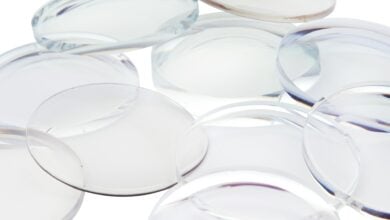Wood flooring is one of the best investments you can make for your home. While many of today’s homeowners prefer conventional hardwood flooring, engineered hardwood is slowly gaining popularity. As with other types of flooring, hardwood and engineered wood have their own pros and cons. Which is right for your home? Here, we’ll provide you with the guidance needed to make an informed decision.
Solid Wood Flooring: The Basics
As the name implies, solid wood flooring is composed entirely of wood. From the topmost to the innermost layers, it’s made from one of a few varieties of wood. The most popular options are:
- Mahogany
- Maple
- Pine
- Hickory
- Oak
- Walnut
Unlike an engineered wood floor, a solid wood floor may be sanded several times over its lifespan. By comparison, engineered wood can be lightly sanded just once or twice before it loses its wear layer.
Solid hardwood is much more durable than engineered wood. When properly maintained, a hardwood floor can last upwards of 100 years. Solid wood flooring (such as that made of Douglas fir) can be very soft, or it can be very hard if it’s made from a wood like Brazilian Walnut. If you’re looking for a wider range of options, solid hardwood is the way to go.
The Pros of Hardwood
Hardwood floors are known for their durability and easy maintenance. Home buyers are willing to pay a premium for hardwood flooring, and these homes often sell faster as well. There’s a wood floor for every décor style, and because so many types of wood are available, there’s sure to be one to suit your tastes.
Hardwood Floor Disadvantages
Wood flooring is an attractive option, but it’s a costly one as well. It must be installed over a proper subfloor, and installation itself is too complex for most homeowners to handle. A scratched or scuffed floor must be refinished; the softer the wood, the more likely it is to be damaged. The refinishing process is costly and it creates fumes and dust. Hardwood flooring can be quite noisy when walked upon, which makes it a poor choice for upper floors and apartments.
About Engineered Wood Flooring
Engineered wood flooring is a viable alternative to hardwood. On the surface, the two types of flooring look much the same; the real differences lie underneath. Below the topmost layer, engineered wood flooring has an 80 to 90% base of high-quality, dense plywood.
The plywood underlayment makes engineered wood flooring more moisture-resistant than conventional hardwood. That’s why engineered wood is so popular in moisture-prone areas such as bathrooms and kitchens. Engineered wood is relatively low-maintenance. Because it’s so resistant to moisture, it won’t warp or buckle like solid wood will.
Finally, engineered wood is more sustainable than solid wood because of its thin surface veneer. Less wood is used, so fewer trees are cut. There’s no sawdust created during the selection process, which means there’s almost no waste.
Engineered Wood Benefits
You can find engineered wood flooring in numerous species, including walnut, cherry, birch, and oak. Exotic woods, such as tigerwood and African mahogany, are also available. It is available in widths from narrow to wide, and you can get it in various specialty looks as well.
Though all wood flooring is vulnerable to moisture damage, engineered wood is more stable due to its multi-layer core. This stability makes it more resistant to humidity and temperature shifts, and it’s less likely to warp. These properties make engineered wood a great choice in areas where hardwood flooring shouldn’t be used, such as over a radiant heating system or a concrete floor.
The Drawbacks of Engineered Wood Flooring
Not all engineered woods are the same. Some flooring products are durable, while others are of low quality. Although many options are thick and heavy enough to feel and look like solid hardwood, some engineered wood products give a hollow sound when walked upon. Installation methods make a substantial difference, and you should find out how your contractor’s installation strategies may affect the floor’s sound.
Engineered wood flooring handles moisture better than hardwood, but it’s still not the best choice for a pool deck or a washroom. Ask an expert about using wood flooring in moisture-prone areas. A solid wood floor can be repeatedly refinished, but engineered wood’s thinner wear layer makes this less of an option. If you’re worried about scratches, choose a product with a thicker wear layer.
A Solid Investment No Matter What
When you’re making the decision between solid hardwood and engineered wood, you’re sure to end up with great-looking flooring no matter which you choose. Because engineered wood is marketed in much the same way as solid wood flooring, both have the same effect on a home’s resale value. Whether you choose engineered wood or solid hardwood, it’s an investment with a substantial dividend.




